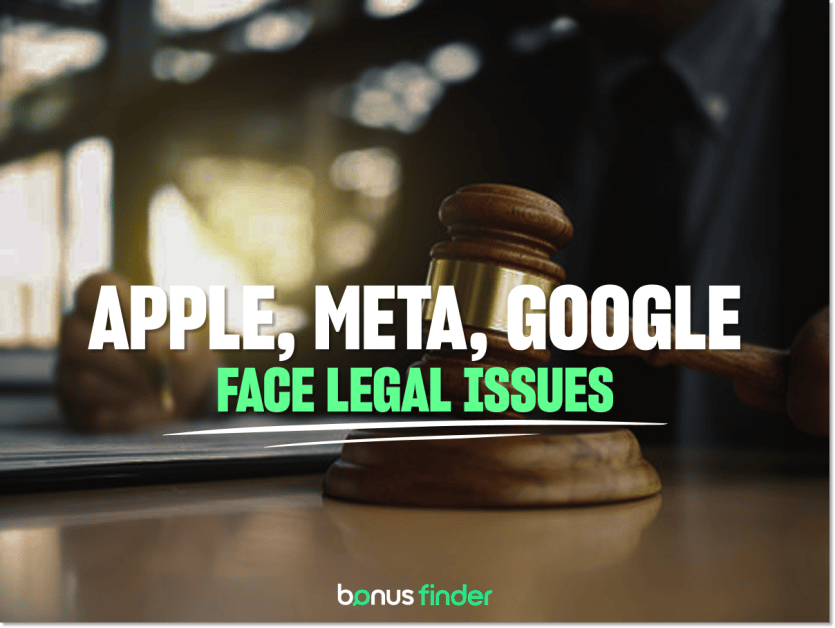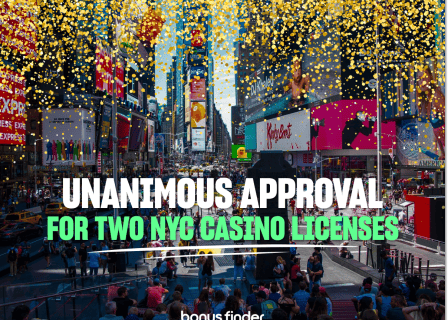Tech giants Apple, Google and Meta have been denied requests by a Federal Judge earlier this week to dismiss lawsuits that claimed they promoted illegal gambling by hosting and accepting commissions from various casino-style apps which users can find addicting, not to be confused with casino games that pay real money.
The main argument by these companies was that going by Section 230 of the federal Communications Decency Act, an act that protects online platforms from accountability over third-party content, protected them from the class actions that were proposed.
US District Judge Edward Davila in San Jose, California, rejected this argument, however, dismissing certain claims alleging violations of some US state laws, but he eventually denied motions to dismiss all the claims which were brought under consumer protection laws except in California.
A host of the plaintiffs claimed that Apple’s App Store, Meta’s Facebook and Google’s Play Store all encouraged an ‘authentic Vegas-style experience of slot machine gambling’ through what turned out to be an illegal racketeering conspiracy.
As such, Apple, Meta and Google exploited users and this is said to have potentially triggered depression, suicidal thoughts and various other consequences, all while collecting around 30% commission which is thought to be estimated at $2m, on the transactions that they ended up processing.
These lawsuits could cost the tech giants millions of dollars in compensation and triple damages.
How casino-style apps operate
The casino-style apps that were used on the App Store, Facebook and Google Play Store mimic slot machines, poker, roulette and other traditional gambling games but use digital tokens or virtual coins instead of real money.
Following an initial free download and starter bundle of free tokens to play with, users are then guided to purchase additional virtual currency through in-app purchases, often priced in tiers ranging from a few dollars to hundreds.
Even though players cannot cash out their winnings for real money, the apps replicate similar psychological mechanics as gambling, such as using daily bonuses and using flashy, enticing rewards as a way of keeping users entertained and engaged in the app.
The key point in this lawsuit is that these apps which appear on Apple, Google and Facebook, encourage players to spend a lot of money chasing rewards which are virtual in nature.
Due to this, companies such as Apple, Google and Meta all earn a share of every single in-app transaction, making millions in profit.
Responses from Apple, Google and Meta
All three companies have rejected claims that these casino-style apps promote unlawful gambling.
Apple, Google and Meta state that social casino apps are marketed as entertainment products, not gambling, and that courts have previously upheld distinctions between virtual tokens and real-money betting.
The tech giants also argue that their actions fall within the standard platform operations, with all three companies responding to the lawsuit.
Apple
In its motion to dismiss the lawsuit, Apple stated that it simply provides a “marketplace to conduct payment transactions” and does not act as a publisher of the content.
The company has also reiterated that social casino apps must comply with applicable laws as a condition of listing in the App Store.
Like Apple, Google has continued to defend its app policies and various payment processing functions. Developers that use Google Play must “comply with all relevant laws within the jurisdiction where the app is available“.
Furthermore, Google provides promotional tools such as analytics and ‘App Campaigns’ to all developers, along with uniform development and argues that these are simply neutral offerings rather than tools which facilitate gambling in any way.
The plaintiffs in this case allege that Google retains a 30% commission fee for all in-app purchases of virtual chips. The company, however, argued that this payment function is a standard platform service and not a publishing act. As such, it should not subject it to liability under Section 230.
Meta
Finally, Meta claims that its role is a platform, rather than an operator of casino apps. According to the plaintiffs, the company provides marketing tools (e.g. ‘App Ads’) and data services to app developers, but maintains that the developers bear legal responsibility for compliance.
Like Google, Meta has made similar arguments regarding Section 230 regarding the payment function as a platform service and not a publishing act.
Judge Edward Davila pushes back on claims from tech companies
In his decision, Davila stated that Apple, Google and Meta did not act as ‘publishers’ when processing payments and this certainly weakens their claims of immunity from the lawsuit under Section 230.
“The crux of plaintiffs’ theory is that defendants improperly processed payments for social casino apps,” Davila wrote. “It is beside the point whether that activity turns defendants into bookies or brokers.”
“Payment processing is not an act of publishing,” he said. “It is a transaction, one that is ‘distinct, internal, and nonpublic.’ Of course, payment processing activities may be an important part of publishing activity. But that does not make payment processing a publishing activity.
“Instead, it is better viewed as a generic business activity common to virtually all companies, publishers or not, just like hiring workers or paying taxes.”
The rise in casino-style apps across the likes of the App Store, Google Play and Facebook doesn’t appear to be slowing down anytime soon.
Indeed, in 2021, nine of the top 12 grossing apps available on Facebook were social casino ones.
Apple, Google and Meta may immediately appeal his decision to the 9th US Circuit Court of Appeals. This is in part to its importance regarding the Section 230 issues.
While this litigation of the tech giants began in 2021, expect it to continue well into 2026 before any decision is finalized.









